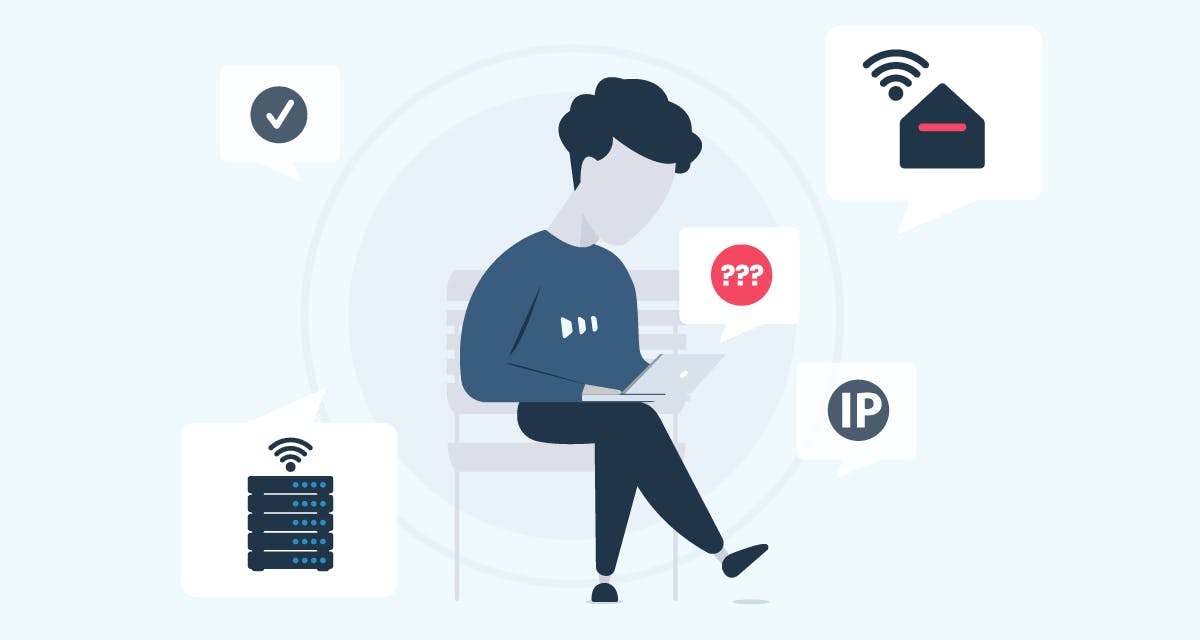I remember the first time I heard the term “residential proxies,” and honestly, it sounded way more complicated than it really is.
But once I broke it down, it made so much sense. Imagine you’re online, and instead of your internet activity showing up as “you,” it looks like it’s coming from a regular home connection somewhere else.
That’s basically what a residential proxy does—it makes your internet activity look natural and helps you stay private or access things you might not otherwise be able to.
I’ll explain what residential proxies are, how they work, and why people use them—whether it’s for staying anonymous, doing research, or bypassing restrictions.
It’s easier to understand than you might think! Let’s dive in.
What Are Residential Proxies?
Residential proxies are like borrowing someone else’s home internet connection to browse the web.
Instead of your request coming directly from your device, it’s routed through a real device—like a computer or smartphone—connected to the internet via a residential ISP (Internet Service Provider).
This makes it look like a genuine user is browsing from that specific location.

Why does this matter? Websites are less likely to flag or block you because you appear as a real person rather than a bot or datacenter.
They’re super handy for things like web scraping, managing multiple accounts, bypassing geo-restrictions, or staying anonymous online.
Think of it like sending your friend to another city to check something for you.
The website thinks it’s your friend, not you, which keeps your actions private and under the radar. It’s all about blending in naturally online!
Are There Any Free Residential Proxies?
The straightforward answer to this question is yes. Residential proxies can be harder to find than other types of proxies, but they can still be found for free or cheap.
People offer free access to home proxy IPs for a variety of reasons. Some folks just do it for fun.
Some people use free residential proxies in the service of an ideal, such as the belief that everyone should have unrestricted access to the internet.
The majority of individuals use the free distribution of residential IP proxy addresses as a business plan. There are both free and paid versions available.
But, the free version could come with a lot of restrictions and advertising.
Some users may eventually switch to paying subscribers if they like the service and want to be free of the intrusive advertisements and restrictions.
How Residential Proxies Work?
Residential proxies work by acting as an intermediary between you and the Internet, using a real device’s IP address provided by an Internet Service Provider (ISP). Here’s a simple breakdown of how they work:

- You make a request: Let’s say you want to access a website or scrape some data. Instead of connecting directly from your device, your request is sent to the residential proxy server first.
- The proxy forwards your request: The residential proxy routes your request through an IP address that belongs to a real device—like someone’s home computer or phone—connected to a residential network.
- Website sees the residential IP: The website you’re visiting sees the proxy’s residential IP address, not yours. Since it’s a legitimate, real-looking IP from an ISP, the website assumes it’s just another regular user browsing the internet.
- The response is sent back to you: Once the website processes the request, the data is sent back to the proxy, which then forwards it to you.
Why Is This Useful?
Residential proxies are great for staying anonymous, avoiding blocks, and bypassing geo-restrictions. For example:
- Web scraping: Gather data from websites without getting flagged as a bot.
- Ad verification: Check how ads appear in different regions.
- Access restricted content: View region-locked websites as if you’re a local.
In short, residential proxies work by giving you a cloak of legitimacy online, using real IPs to make your activities look natural and undetectable!
Are Free Residential Proxies Safe?
It depends on the place from which you acquire the proxies and the provider’s motivation. Some individuals provide free residential proxy IPs for illegal activity.
They give the impression that all they are doing is giving you access to a service that will help you increase your online security and anonymity.
But because of their intentions, the reverse occurs.
The proxies give them a way to carry out nefarious deeds like collecting victims’ credentials and installing malware on their devices.
The Top Residential Proxies In 2025
| Provider | IPs | Geo-targeting | Protocols | Success Rate | Key Features | Entry Price |
|---|---|---|---|---|---|---|
| Bright Data | 72M+ | Country, city, ZIP code, ASN | HTTP, HTTPS, SOCKS5 | 99.9% | High reliability, advanced targeting, 20k+ customers | $5.04/GB |
| Oxylabs | 100M+ | Country, city, ZIP code | HTTP, HTTPS, SOCKS5 | 99.95% | Large IP pool, ethical sourcing, 24/7 support | $8/GB |
| Smartproxy | 55M+ | Country, city, ZIP code | HTTP, HTTPS, SOCKS5 | 99.47% | Budget-friendly, user-friendly dashboard | $7/GB |
| IPRoyal | 32M+ | Country, state, city | HTTP, HTTPS, SOCKS5 | 99.7% | Affordable plans, static and rotating proxies | $7.00/GB |
| NetNut | 85M+ | Country, state, city | HTTP, HTTPS, SOCKS5 | — | High uptime, no bandwidth limits | $100/mo |
| SOAX | 155M+ | Country, city | HTTP, HTTPS, SOCKS5 | 99.95% | Flexible targeting, clean IP pool, ethical proxy sourcing | $99/mo |
| Infatica | 15M+ | Country, city, ISP | HTTP, SOCKS5 | — | Great for small-scale users, static residential proxies | $8/GB |
| Webshare | 30M+ | Country | HTTP, SOCKS5 | — | Affordable, customizable plans | $7.00/GB |
Residential Proxies – Use Cases
1. Web Scraping – Collect large volumes of data from websites without getting blocked or flagged as a bot.
2. Ad Verification – Confirm that online ads are displayed correctly in different regions and identify fraudulent activities.
3. Access Geo-Restricted Content – Bypass location-based restrictions to access websites, streaming services, or online stores that are locked to specific regions.
4. Social Media Management – Manage multiple accounts, post content, and perform automated actions without triggering bans.
5. E-commerce Price Monitoring – Track competitor prices, inventory levels, and product trends on e-commerce platforms.
6. SEO Monitoring – Conduct keyword rank tracking and SERP analysis while avoiding IP bans.
7. Market Research – Gather localized data to analyze trends, customer behavior, and competitor strategies.
8. Fraud Prevention and Security – Test websites or apps from various locations to identify vulnerabilities and prevent fraudulent activities.
Residential proxies are versatile tools that provide anonymity, data collection, and the ability to browse region-specific content!
Are Residential Proxies Cheap?

To your great dismay, you have probably also learned that residential proxies are much more expensive than data centre proxies.
Today, we discuss why this is the case, explain why a premium home IP address is pricey, and warn you against using low-cost residential proxies.
Why Is It So Difficult to Find a Cheap Residential Proxy?
It depends on how residential proxies are constructed. These proxy IP addresses are assigned to specific houses and are provided by Internet Service Providers.
They are connected to house furnishings and appliances. You are presumably using a domestic IP address if you are reading this blog post on a laptop connected to your home WiFi.
Home proxy IP addresses, therefore, belong to real persons. They are more challenging to locate for the plain cause that they are.
Residential proxy providers must make arrangements with the owners of these addresses in order to ethically obtain residential proxies that they can offer you.
These businesses typically pay the IP owners in exchange for granting them access to their IP addresses. Residential proxies are, therefore, difficult to get ethically. Keep in mind the qualifier “ethically” used here.
On the other hand, data center IP addresses are more accessible and less expensive to purchase because businesses do not need to haggle with real individuals to obtain them.
The term “data center proxy” refers to the production and management of these IP addresses by data centres. They are not connected to ISPs or fixed to specific dwellings.
Because of their higher worth by nature, residential proxies are likewise more expensive. They can guarantee higher success rates when doing procedures like web scraping and offer a considerably wider range of applications than data center proxies.
Residential Proxies vs. Other Types Of Proxies
| Feature | Residential Proxies | Datacenter Proxies | Shared Proxies | Private Proxies |
|---|---|---|---|---|
| IP Type | Real home internet connections | Virtual server connections | Shared by many users | Dedicated to one user |
| Anonymity | High, hard to detect | Moderate, can be flagged | Low, easily flagged | High, private use |
| Speed | Moderate | Fast | Moderate | Fast |
| Cost | Expensive | Affordable | Cheapest | Mid-range |
| Best For | Web scraping, bypassing blocks | Gaming, streaming, bulk tasks | Simple browsing | Secure browsing, accounts |
| Geo-targeting | Very precise | Limited | Limited | Limited |
| Detection Risk | Low | High | High | Low |
Quick Links:
- Residential Proxies Vs ISP Proxies
- Best Residential Proxies
- Residential Proxies Vs Datacenter Proxies
- Best Datacenter Proxy Services
- Best Residential Proxy For SEO Link Building
- Best Cheap Private Proxy Servers
- Best Tripadvisor Proxies
- Best TikTok Proxies
- Brazy Proxy Alternatives
Final Thoughts: Residential Proxies 2025
Network security and individual privacy are more important than ever today. Both businesses and everyday individuals must protect their data and online activities due to the rising number of cyberattacks.
One effective way to enhance online security is by using residential proxies. These proxies can significantly benefit both companies and individual users.
They provide better targeting options, access to restricted content, increased privacy and security, as well as improved performance.
Although residential proxies may not be the cheapest option available, they are a worthwhile investment. They are cost-effective, reliable, stable, easy to use, flexible, and scalable!




